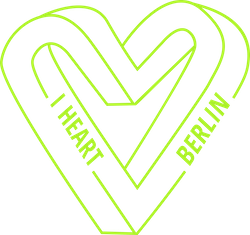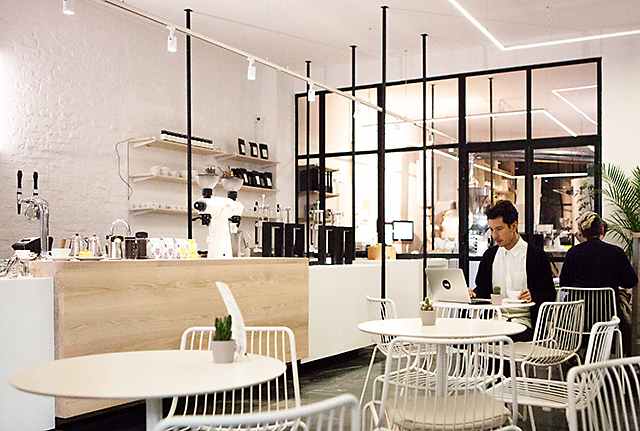Photo by Cherie Birkner
I moved to Berlin from New York because of everything Berlin promises: freedom, liberty, affordability, creativity, internationalism, a nice dose of socialism – a real celebration of the artist’s life. It’s the party capital of the world with a burgeoning tech scene, a true city of the 21st century built out of the rubble of 20th century. For such a progressive, young and energized city, then, why do I have such trouble with internet access?
I’m not even talking about the dreaded download fines up to €1000, the IP-spying, the GEMA denials of YouTube videos “not allowed in your country”, as frustrating as these things are. I’m just talking about basic access to the amazing modern utility on our planet: the internet!
Lisa’s internet is faster than mine.
My old O2 service in Prenzlauer Berg was terrible, even after a technician tried to fix it. Then I lived in Mitte, where I paid Vodafone upwards of €100 per month for a combined cell plan and home internet. Sometimes my download speeds hit lows of 4MB/s on a supposed 60MB/s service), and often cut out all together. The router didn’t reach the kitchen despite a clear visual line from the stove to the living room. People say it’s because of the thick walls, or the lead in the paint maybe. It’s a citywide issue in most altbaue, affecting homes and public spaces alike. I find it quite unacceptable.
Now in Neukölln, my home internet is provided by the building, which has its own issues, connectivity and otherwise. I often have to switch to my data plan on my phone, eating into my monthly 3GB while scrolling through Reddit gifs. The 4G network is rarely available, let alone LTE. Service randomly switches from 3G to the dreaded E network. Dropped calls, buffering videos, pages that won’t refresh… I’ll be messaging on WhatsApp and suddenly my messages will fail to send, totally sucking the rhythm out of conversations. Working from home is great, but pretty damn difficult when the internet doesn’t cooperate!
I feel like I have 90s internet.
Café culture is one of my favourite things in Berlin. There’s nothing better, really, than friends catching up over coffee among relaxed business meetings, creative freelancers working on their laptops in well-designed rooms that serve caffeine. A key ingredient to café culture is wi-fi, of course, so that we can email collaborators from kilometres away, research ideas on a dozen open tabs at once, and take plenty of SFW micro-breaks.
It’s sad, then, to note how in danger our public offices are becoming. At a new café near Boddinstraße I was recently told that laptop use was segregated to the less pleasant table in the back so that passers-by wouldn’t be encouraged to come in, buy their €2 coffee and take up seats for hours on end. In Mitte, I was given a unique wi-fi code that lasted only an hour. Another café keeps its nice tables in a separate co-working room, and to access it, you have to pay a membership fee and properly join the space.
And of course there are plenty of cafés that simply refuse to give out wi-fi altogether. This seems to be a growing trend. Bars refuse to give out their wi-fi as well. It’s as if these public places want to foster a more antiquated culture in which we are supposedly “more present”, as if we’ll talk more with each other without our digital distractions. I doubt that our phones actually prevent us from meeting strangers. I doubt there was a time when we said hello simply because we had no other ways to amuse ourselves, or that the outgoing people have stopped doing so. Print media have always given us a way to be alone in public spaces. So I’m hardly convinced when I’m told there’s no wi-fi for this reason.
More cynically, I think shopkeepers just don’t want to provide free desk space to underemployed writers. And I find this threatening. The dream of the bohemian creative class is under some attack, however minor, because the realities of capitalism affect the shop owners: money must be made to pay the rent. A €3 latte demands high turnover, and high turnover demands less sitting around.
There are plenty of articles online that tell me this is all probably a blessing in disguise: we should spend less time in front of screens and more time talking to each other, or something. Friends of mine don’t even get mad when a café says there is no wi-fi because they think this is a good remedy for their own internet addiction. And it is true: we probably scroll mindlessly through our feeds more than we should. But it’s like any sensible public policy – in Berlin, we enjoy cheap beer that we can drink in public. Does it mean our alcohol abuse is worse than in Australia? No, it’s much better actually – Germany is far less violent, far less aggressive. Like the French youth raised on sensible wine tasting, we are accustomed to drinking, and can do it responsibly. The same can be true for the internet. A public policy of normalization and abundance can help us integrate the wonderful connectivity into our lives better.
I believe in the internet. I think of it as a public utility, like water. I don’t need either all of the time, but I need both throughout the day, and I expect every place to have it. We need much more internet across all cities around the world, not less. If coffee shops, bars and restaurants don’t want to provide it, the city itself should. And indeed more and more are doing so. In Berlin it’s freely accessible in parts of Mitte. It will be hard for a shop in Berlin to tell me that I should just talk to my neighbour instead of writing email when they’re no longer able to limit the access. Or maybe I’ll just move my nomadic office to any underground BVG hotspot, since so many U-Bahn stations now feature it. As well they should! It’s a step in the right direction.
This article is a tandem piece with In Praise of Internet on DailyBreadMag, by Keith Telfeyan. Follow him on Instagram

